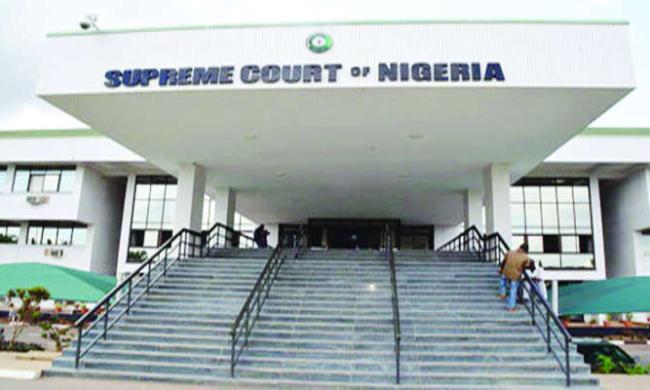The Supreme Court on Thursday ordered state governors to enter their defences in a complaint filed by the Federal Government against them for alleged misconduct in local government affairs within seven days.
A seven-member top court panel chaired by Justice Garba Lawal also allowed the Attorney General of the Federation two days to respond to the 36 state governors’ argument. A further hearing on the claim, which seeks full autonomy for the 777 Local Government Areas, has been scheduled for June 13.
The Supreme Court also ordered that the eight states that were absent in court be served with a new hearing notice. They are Borno, Kano, Kogi, Niger, Ogun, Osun, Oyo, and Sokoto states.
Justice Garba Lawal fixed the date while ruling in an application for abridgment of time argued by the Attorney General of the Federation and Minister of Justice, (AGF), Lateef Fagbemi, SAN.
Lawal said that the decision of the court was predicated on the national urgency of the suit and the non-objection from the attorneys general of the states of the federation. The AGF specifically said the application was to allow time for all parties to file their processes and exchange same.
In the suit marked SC/CV/343/2024, the AGF is praying the apex court for an order prohibiting state governors from unilateral, arbitrary, and unlawful dissolution of democratically elected leaders for local governments.
The AGF, Lateef Fagbemi, instituted the action against the governors to seek full autonomy for local governments as the third tier of government. According to Fagbemi, the suit is a deliberate attempt at removing local governments from gross abuse by the state governors. The suit is predicated on 27 grounds, among which are that the Nigerian Federation is a creation of the 1999 Constitution with the President as head of the federal executive arm of the Federation, who has sworn to uphold and give effect to the provisions of the Constitution.
The originating summons, personally signed by Fagbemi, has been fixed for hearing on May 30.
He is praying the court for an order permitting the funds standing in the credits of local governments to be directly channelled to them from the federation account in line with the provisions of the constitution as against the alleged unlawful joint accounts created by governors.
He also sought an order stopping governors from constituting caretaker committees to run the affairs of local governments, as against the constitutionally recognised and guaranteed democratically elected system.
He applied for an order of injunction restraining the governors, their agents, and privies from receiving, spending, or tampering with funds released from the federation account for the benefit of local governments when no democratically elected local government system is put in place.
Fagbemi asked the apex court to invoke sections 1, 4, 5, 7, and 14 of the constitution to declare that the state governors and State Houses of Assembly are under obligation to ensure a democratic system at the third tier of government.
The suit also wants the apex court to invoke the same sections to hold that the governors cannot lawfully dissolve democratically elected local government councils.
In a 13-paragraph affidavit in support of the originating summons deposed to by Kelechi Ohaeri from the AGF’s office, Fagbemi averred that he filed the suit under the original jurisdiction of the Supreme Court on behalf of the federal government.
The deponent asserted that the local government system recognised by the constitution is a democratically elected local government council and that the amount due to local government councils from the federation account is to be paid to the local government system recognised by the constitution.
That the governors represent the component states of the Federation with Executive Governors who have also sworn to uphold the Constitution and to, at all times, give effect to the Constitution, and that the Constitution, being the supreme law, has binding force all over the Federation of Nigeria.
Other prayers include: that the constitution of Nigeria recognises federal, state, and local governments as three tiers of government, and that the three recognised tiers of government draw funds for their operation and functioning from the Federation Account created by the Constitution.
By the provisions of the Constitution, there must be a democratically elected local government system, and the Constitution has not made provisions for any other systems of governance at the local government level other than a democratically elected local government system.
In the face of the clear provisions of the Constitution, the governors have failed and refused to put in place a democratically elected local government system, even where no state of emergency has been declared to warrant the suspension of democratic institutions in the state.
The failure of the governors to put a democratically elected local government system in place is a deliberate subversion of the 1999 Constitution, which they and the President have sworn to uphold.
Fagbemi also said that all efforts to make the governors comply with the dictates of the 1999 Constitution in terms of putting in place a democratically elected local government system have not yielded any result.
The AGF said that the federal government continued to disburse funds from the Federation Account to the governors for non-existing democratically elected local governments to undermine the sanctity of the 1999 Constitution.
He averred that in the face of the violations of the 1999 Constitution, the federal government is not obligated, under Section 162 of the Constitution, to pay any state funds standing to the credit of local governments where no democratically elected local government is in place.


